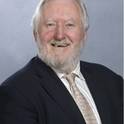While empirical research on school subject preferences and choices has a long history, 'interest' has infrequently been invoked as an explanatory construct. Three levels on which interest is conceptualised in educational research are identified. The most general derives from vocational psychology and may be characterised by the themes of Holland's RIASEC typology. The results of five recent Australian studies in which interests were related to school subject preferences and choices are reviewed, and a series of multi- level models of data from the most recent are presented. The models offer a coherent summary of interest - school subject choice relations and enable accurate estimates to be made of their relative importance across the curriculum fields typically available in the senior secondary years. The consistency in the results of the five studies provides strong support for the hypotheses that school subject preferences and choices are systematically related to interests, and that Holland's RIASEC themes provide a coherent account of preferences and choices across a broad range of objects, activities and contexts encountered in school and work.
Available at: http://works.bepress.com/john_ainley/51/
